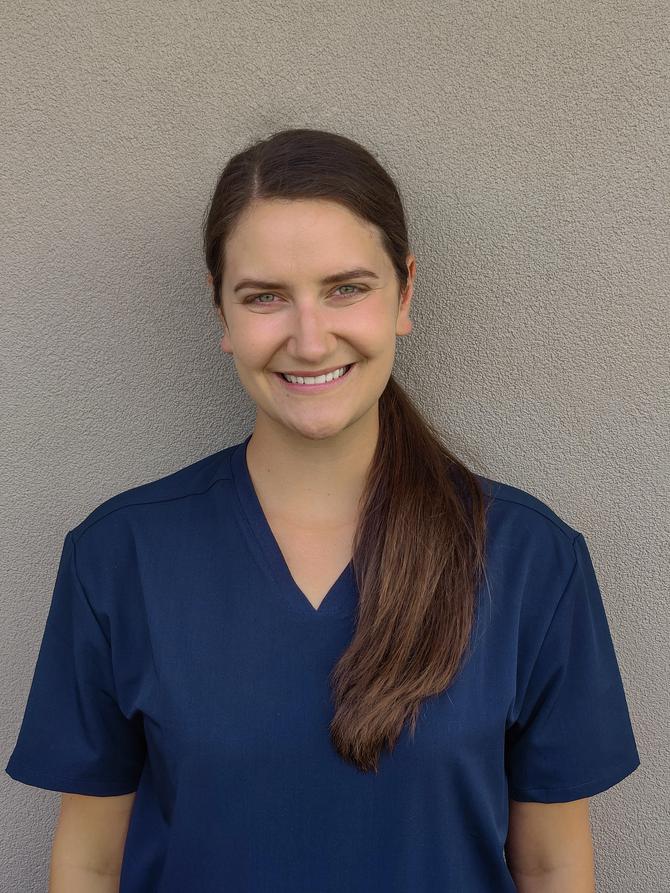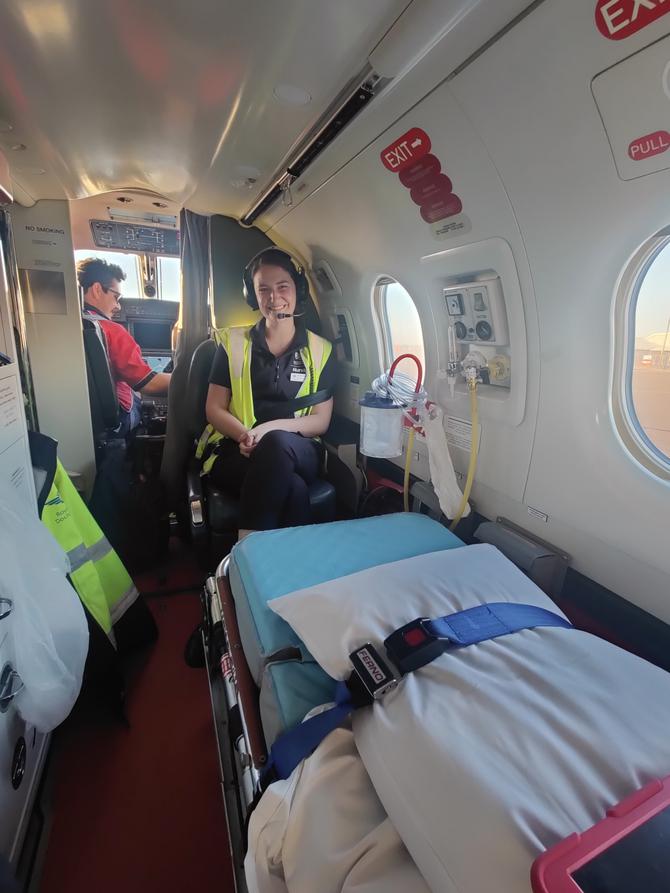Kasmyn Murfet studied nursing because she was drawn to the flexibility and variety of the job, but she still never expected it to take her into the outback heart of Australia.
Kasmyn, 24 from Launceston, graduated from the University of Tasmania with a Bachelor of Nursing in 2021, topping off her degree with a two-week work placement with the Royal Flying Doctor Service at Port Augusta, South Australia.
Not only was it a valuable learning experience from a medical perspective, but it also gave Kasmyn a new appreciation for the human side of her work and highlighted the importance of empathy.
“In a hospital setting, patients come in and the focus is heavily on the diagnosis, treatment, managing the disease and so on,” Kasmyn said.
“But when you’re picking people up in these remote locations, flying them to a hospital eight hours drive from home and they can’t take any family with them, you tend to think more about their lives, where they’ve come from, you see them more as a whole person.”
Kasmyn took a three-year study break after finishing grade 12, spending her time travelling and performing as a professional dancer around Australia and overseas.
Still with a desire to travel, she decided nursing would not just be a rewarding career, but would also give her the transferrable skills she needed to find work just about anywhere.

Launceston Bachelor of Nursing graduate Kasmyn Murfet
“Nursing is so flexible
and there are so many different specialisations that if you find you’re not
happy doing the job in one particular environment, you can do it in a different
one.”
Having lived in Launceston her whole life, Kasmyn was thrilled to be able to study her degree in her home city and said the nursing school at Launceston’s Newnham campus was excellent.
Thanks to the COVID-19 pandemic, new nursing graduates are entering a workforce and a clinical environment that is quite different from previous years. But Kasmyn says she and her fellow graduates have been well prepared for the realities of this “new normal.”
“COVID has been part of our course since 2020, really. We’ve just always had to wear PPE and practice using it, I had to wear a mask every day of every placement and swabbed people routinely when they came in, so it’s been pretty much built into our degree.
If anything, watching the pandemic unfold has made me even more determined to follow this career path. I’ve seen firsthand the impact it has had on people’s health and I’m glad I now have the skills to contribute and help.
Kasmyn’s two-week placement with the RFDS further reinforced her dedication to nursing and how particularly valuable those skills are in regional and remote areas.

Kasmyn Murfet at her post aboard the Royal Flying Doctor Service aircraft in South Australia.
“We were based at Port Augusta, a good few hours out of Adelaide, and covered pretty much all of South Australia from the Nullarbor near Western Australia, to the NSW border, and to Oodnadatta near the border with the Northern Territory. And many of those communities would be a six-hour drive or more from the nearest doctor or GP clinic.
“We did an average of five pickups a day and nearly every time involved transporting them back to Adelaide. Most commonly they would be things like heart attacks, elderly people having a fall at home, things of that nature.
“Other days we would run primary health care clinics, where we would fly to a remote community or a cattle station and do a whole day health clinic for the area.
“You would book in maybe six appointments for the day so people could have check-ups, get scripts renewed, that sort of thing. And it might be a few months before that community would see you again.
“So it really made me acutely aware of how important these services are for people in those areas.”
Commencing full time work at the Launceston General Hospital at the start of 2022, Kasmyn said she hoped to do more work in smaller or remote communities, rather than big cities.
Rural community nursing is where you really get to know the people, work in their home environment, and that’s the part of my job I really like. They’re not just numbers, you get to know them and work alongside them.
“The RFDS showed me there is so much to see in Australia and when you’re in that community/rural setting, you're so much more aware of the difference you are making in people’s lives, and I love that.”
Find out where studying nursing at the University of Tasmania can take you.